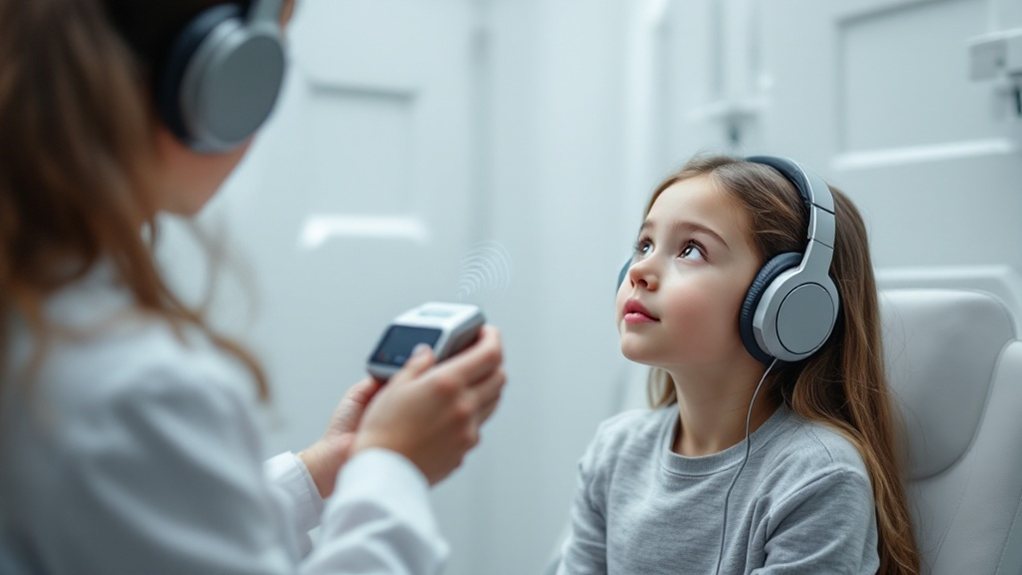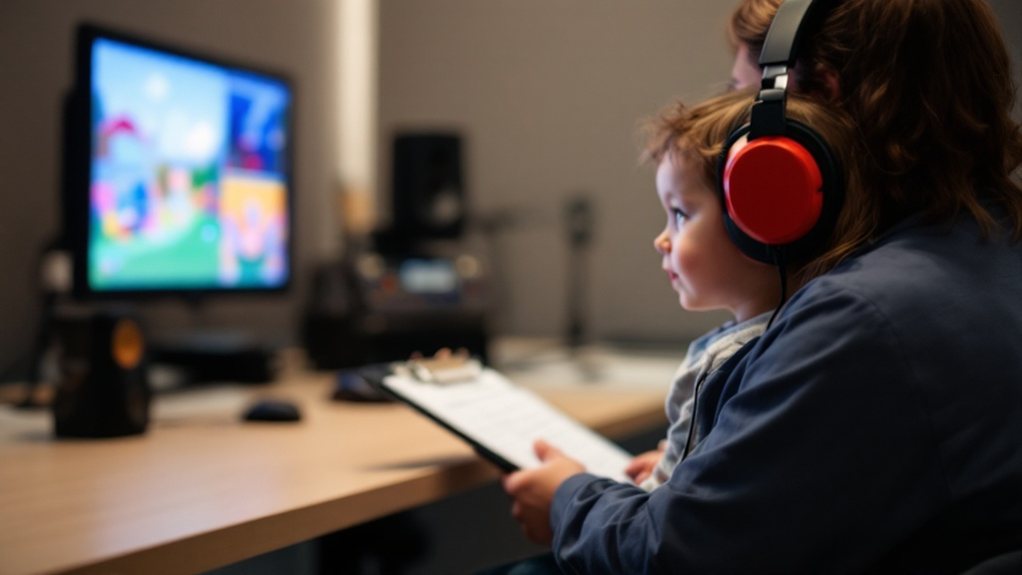Are you looking for Children Hearing Test Algester?
Ready to take the first step towards better hearing?
Let’s talk!
Connect with us today! Fill out the contact form below to schedule your personalised hearing consultation at All Things Hearing. Our expert team is committed to guiding you on your journey to improved hearing health. Don't wait to enhance your quality of life. Reach out now – we're here to listen and help!
Follow us:
Our main hearing clinic is located in Greenbank and our visiting sites are located in Daisy Hill, Jimboomba, Parkinson, and Wishart.
You're taking a crucial step in ensuring your child's healthy development by learning about children's hearing tests at All Things Hearing, who provide their hearing services in the area. They're quick, painless, and essential for identifying potential issues that could impact language and communication skills.
You'll want to know the signs of hearing problems, like lack of response to sounds or difficulty with speech development. Understanding the types of tests and what to expect can help you prepare your child.
As you move forward, you'll discover more about what the test results mean and how they'll guide the next steps for your child's hearing health.
Importance of Hearing Tests

Your child's ability to hear is crucial for their development, and it's essential that you don't overlook it – a simple hearing test can be the key to identifying potential issues. You'll want to ensure your child's hearing is checked regularly, as it plays a significant role in their language and communication skills. If you're concerned about your child's hearing, you shouldn't hesitate to schedule a test.
You should also be aware that hearing tests are relatively quick and painless, so it's not something you should worry about. It's better to identify any issues early on, as it can make a significant difference in your child's life. You can work with your child's doctor or an audiologist to schedule a hearing test, and they'll guide you through the process. By taking this step, you're taking a proactive approach to your child's health, and it's something you won't regret.
Signs of Hearing Problems
Now that you're aware of the importance of regular hearing tests, it's time to recognize the signs that may indicate a problem. You should watch for signs that your child can't hear well, such as not responding to their name or other sounds. If you notice your child can't locate the source of a sound, it may be a sign of a hearing problem. You might also notice that your child has trouble understanding speech or following instructions.
You'll need to pay close attention to your child's behavior and development. If you notice delays in speech or language development, it could be a sign of a hearing issue. You should also be aware of other signs, such as ear pain or discharge, which can indicate an underlying problem. If you're concerned about your child's hearing, don't hesitate to consult a doctor or an audiologist. They can assess your child's hearing and provide guidance on the next steps to take. By recognizing these signs, you can help identify potential hearing problems early on.
Types of Hearing Tests

When it comes to identifying hearing problems in children, it's crucial to understand the different types of tests available for assessing their hearing. You'll find that there are several tests designed to evaluate your child's hearing, and each has its own purpose. For instance, pure-tone audiometry is used to assess your child's ability to hear different frequencies.
You may also come across tympanometry, which is used to evaluate the middle ear's function. It's a test that doesn't require your child's response, making it suitable for younger kids. Another type of test is otoacoustic emissions testing, which is used to assess your child's inner ear function. It's also a non-invasive test that doesn't require a response from your child. You should be aware of these tests, as they can help identify any hearing problems your child may have, allowing for early intervention and treatment. This can significantly impact your child's language development and overall communication skills.
Test Preparation and Process
Before undergoing a hearing test, it's essential to prepare your child in advance to ensure they're comfortable and cooperative during the process. You'll want to explain what's going to happen in a way that's easy for them to understand. Let them know that they'll be listening to sounds and responding to what they hear. It's also a good idea to bring a favorite toy or stuffed animal to provide reassurance.
During the test, you'll likely be asked to stay with your child to help them feel more at ease. The tester will use various techniques to assess your child's hearing, such as playing sounds through headphones or speakers. Your child will be asked to respond to the sounds, either by pointing to their ear or repeating what they hear. You should follow the tester's instructions and encourage your child to do the same. By being prepared, you can help ensure the testing process goes smoothly.
Hearing Test Results Analysis

Several key factors will influence the analysis of your child's hearing test results. You'll need to consider the type of test administered, your child's age, and their overall health. It's also important to look at the test's sensitivity and specificity, as these can impact the accuracy of the results. You should receive a detailed report outlining the findings, which may include an assessment of your child's hearing thresholds and any potential hearing losses.
When reviewing the results, you'll want to pay attention to any abnormalities or concerns noted by the tester. You may see results presented in a graphical format, such as an audiogram, which can help you visualize your child's hearing abilities. It's essential to understand that hearing test results can be complex, and you may need to ask questions to ensure you fully comprehend the findings. You should take the time to review the report carefully and don't hesitate to seek clarification if you're unsure about any aspect of the results. This will help you understand your child's hearing status and what it means for their overall health.
Treatment and Follow Up
Your child's treatment plan will depend on their specific hearing test results, and you'll work with a healthcare professional to determine the best course of action. You'll discuss the severity of their hearing loss, and they'll recommend treatment options. If your child has a hearing aid or implant, you'll need to learn how to properly care for and maintain it.
You'll also schedule follow-up appointments to monitor your child's progress and adjust their treatment plan as needed. It's essential to attend these appointments to ensure your child's hearing loss isn't worsening. You'll work with a team of specialists, including audiologists and speech therapists, to develop a plan that addresses your child's unique needs. They'll help you identify strategies to improve your child's communication skills and provide support to help them thrive. By working together, you can help your child overcome their hearing challenges and reach their full potential.
Disclaimer
The content on our site is purely for education and should not be seen as an endorsement or recommendation of any treatments or products without a thorough hearing assessment and evaluation. Before starting any treatment, users should get advice from a professional and be fully aware of any potential side effects or risks related to the procedures. Any products we mention cannot be purchased by the public without first consulting a hearing health expert.
